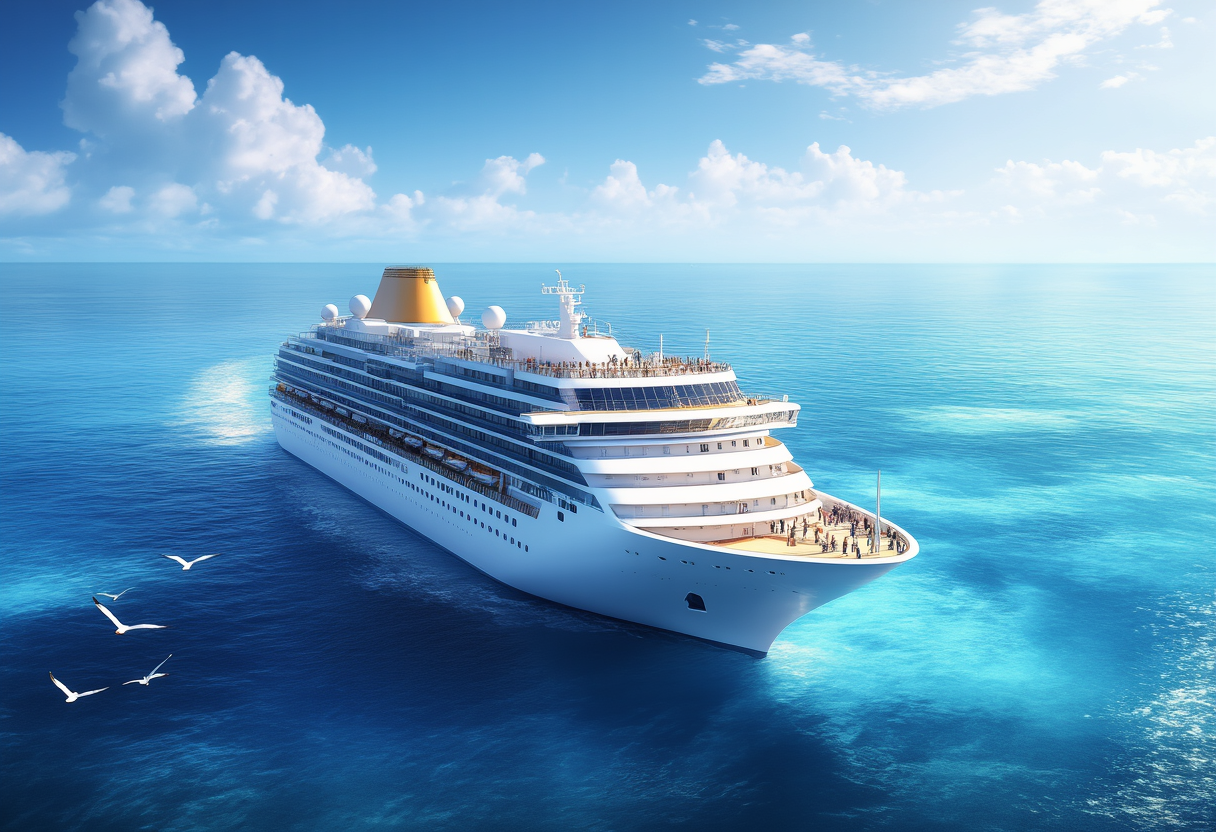The Rise of Cruise Tourism: Exploring the Future of Ocean Travel
Cruise Tourism is rapidly transforming the travel landscape, appealing to adventure seekers and leisure travelers alike. As an alluring blend of exploration and luxury, this sector is projected to grow significantly. With innovations in eco-friendly technologies and personalized experiences, cruise lines are redefining maritime travel. This article examines the factors spurring this growth and the anticipated trends shaping the future of cruise tourism.
The Emergence and Growth of Cruise Tourism
Cruise Tourism has become a significant player in the global travel industry, gaining immense popularity over the past few decades. This form of tourism offers a unique blend of relaxation, adventure, and cultural exposure, attracting millions of travelers annually. Various factors have contributed to the rise of cruise tourism, including the increasing affordability of cruise packages, the expansion of cruise routes, and improvements in onboard amenities. The diversity of destinations accessible via cruise ships allows passengers to explore multiple ports within a single trip, enhancing the overall travel experience. Moreover, cruise lines have made substantial investments in modernization, catering to the evolving preferences of travelers. For example, many ships now feature state-of-the-art facilities, including theaters, wellness centers, and gourmet dining options, thus elevating the standards of cruise tourism.
Technological Innovations in Cruise Tourism
The integration of technology in Cruise Tourism has revolutionized the way travelers experience ocean voyages. Modern cruise ships are equipped with advanced navigation systems, smart technologies, and eco-friendly designs, which significantly enhance the safety and comfort of passengers. A prime example is the use of automated tracking systems that improve route efficiency and minimize fuel consumption. Furthermore, mobile applications have made it easier for cruisers to plan their itineraries, track ship activities, and communicate with crew members. These technological advancements not only enrich the passenger experience but also contribute to sustainable practices in the cruise industry. The commitment to reducing carbon footprints and incorporating green technologies is becoming a key selling point for many cruise lines. As a result, Cruise Tourism is evolving into a more responsible and luxurious travel option, appealing to environmentally conscious travelers.
The Cultural Impact of Cruise Tourism
Cruise Tourism also plays a vital role in cultural exchange and economic development in various regions. By visiting port cities, cruise passengers inject considerable revenue into local economies, supporting small businesses, local artisans, and cultural initiatives. This type of tourism fosters unique interactions between travelers and local communities, often resulting in an exchange of ideas and traditions. Cultural excursions offered by cruise lines encourage guests to engage with local customs, foods, and history, thus promoting greater understanding and appreciation of diverse cultures. However, it is essential to approach this dynamic carefully to avoid potential over-tourism and its adverse effects on local communities. Nonetheless, when managed responsibly, Cruise Tourism can serve as a catalyst for cultural connections and sustainable development.
Future Trends in Cruise Tourism
Looking ahead, several trends are expected to shape the future landscape of Cruise Tourism. Personalized experiences are increasingly gaining traction, with cruise lines tailoring offerings to meet the unique desires of guests. This includes customizable dining options, specialized excursions, and bespoke wellness programs. As consumer demand for unique experiences continues to rise, cruise companies are adapting their services to create memorable, individualized journeys. Additionally, an uptick in river cruising is anticipated, as travelers seek immersive experiences in picturesque and culturally rich destinations. River cruises provide a more intimate setting with direct access to major cities and historic sites, making them an attractive alternative to ocean cruises. Consequently, the future of Cruise Tourism appears promising, poised for growth and diversification.
The Challenges Facing Cruise Tourism
Despite its rapid expansion, Cruise Tourism faces several challenges that must be addressed for sustainable development. Environmental concerns such as pollution, waste management, and the impact of large ships on coastal ecosystems are pressing issues. The cruise industry is actively working to mitigate these challenges by adopting greener technologies and practices; however, continued vigilance is necessary to ensure long-term sustainability. Additionally, the industry must navigate evolving passenger expectations, particularly concerning health and safety. The COVID-19 pandemic underscored the need for enhanced protocols to ensure passenger well-being, leading to innovative health measures onboard. Finally, the geopolitical landscape and fluctuating economic conditions can affect cruise itineraries and consumer spending patterns, posing inherent risks to the industry's growth trajectory. Understanding and proactively addressing these challenges will be essential for the continued success of Cruise Tourism in the future.
Conclusion: The Future of Cruise Tourism
In conclusion, Cruise Tourism is on a distinct upward trajectory, driven by technological advancements, cultural exchanges, and a rising demand for unique experiences. As the industry continues to evolve, it must prioritize sustainability and address its challenges to ensure future viability. The continued growth of Cruise Tourism presents exciting opportunities for travel enthusiasts and coastal communities worldwide, promoting deeper cultural connections and economic benefits. The future of cruising holds considerable promise, and as it adapts to changing market demands, it remains a compelling option for those seeking adventure and luxury on the open seas.
